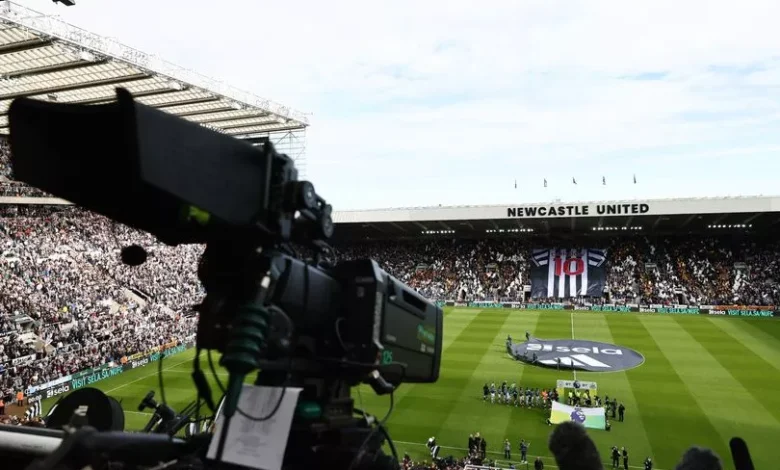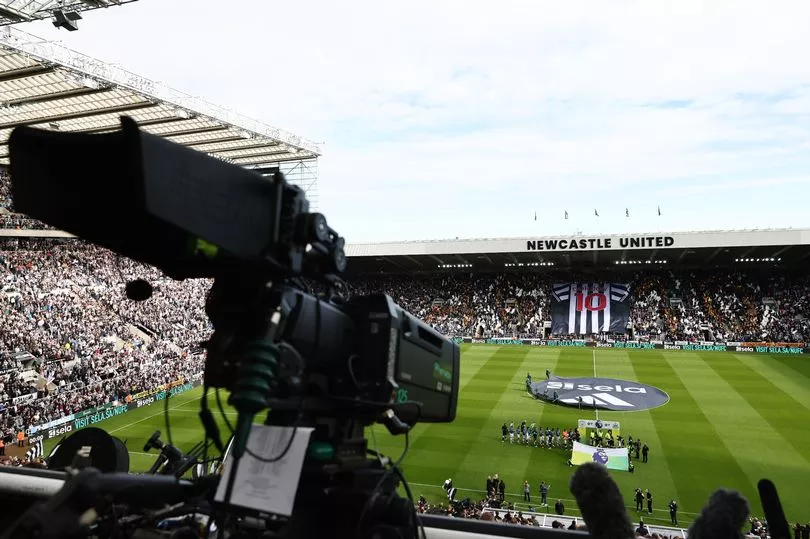Newcastle United’s £154.7m earnings revealed as Premier League unveils TV revenue figures.
Newcastle United earned £154.7m after securing seventh place and featuring in 23 live UK broadcasts last season.

Newcastle United earned £154.7 million in TV revenue last season, as detailed in the Premier League’s annual report, which outlines the distribution of top-flight earnings for the 2023-24 campaign.
This amount primarily came from equal shares of UK (£31.2m) and international (£55.7m) broadcasting revenue, along with a central commercial payment of £8.2m, sums received by all 20 clubs in the league.
Beyond these fixed payments, clubs also earned merit-based payments from both UK and international broadcasters, determined by their final league position.
Additionally, a facility fee was awarded based on how frequently a team’s matches were televised in the UK.
Newcastle, finishing seventh and featuring in 23 live broadcasts, accumulated a total of £154.7 million.

Despite this substantial sum, several clubs, including Manchester United, Tottenham Hotspur, Chelsea, Aston Villa, Liverpool, Arsenal, and Manchester City, earned more.
Newcastle’s earnings were also £10 million lower than the previous season, when they finished higher in the table and had more games televised.
To put this in perspective, Newcastle’s wage bill stood at £186.7 million two seasons ago—already exceeding their TV revenue at the time.
Since then, salaries have likely increased, and the club’s 2023-24 financial accounts, set to be published soon, will provide further insight into why Newcastle’s Profitability and Sustainability Rules (PSR) compliance has been tight, contributing to their need to end recent transfer windows in profit.
The Premier League’s revenue distribution report also sheds light on “anchoring,” a financial model currently being trialed.
Under this system, clubs would be permitted to spend up to five times the TV and prize money received by the league’s bottom-placed team.
Last season, Sheffield United, who finished 20th, received £109.7 million, meaning the proposed cap would theoretically allow clubs to spend a maximum of £548.5 million.
However, top-flight clubs must also adhere to squad cost controls. Teams not competing in European competitions are restricted to spending 80% of their revenue and net transfer profit/loss on wages, transfers, and agent fees.
For clubs playing in European competitions, UEFA mandates a 70% limit, a rule Newcastle have already been following ahead of its implementation in the Premier League next season.
If anchoring is introduced, it could create a more level financial playing field by enforcing a universal spending limit, regardless of a club’s commercial income.
However, the Professional Footballers’ Association (PFA) has threatened legal action if the Premier League attempts to implement a strict salary cap next season.
With financial regulations evolving, Newcastle’s financial strategy and compliance with PSR will remain crucial as they navigate future transfer windows and aim to remain competitive at the highest level.



